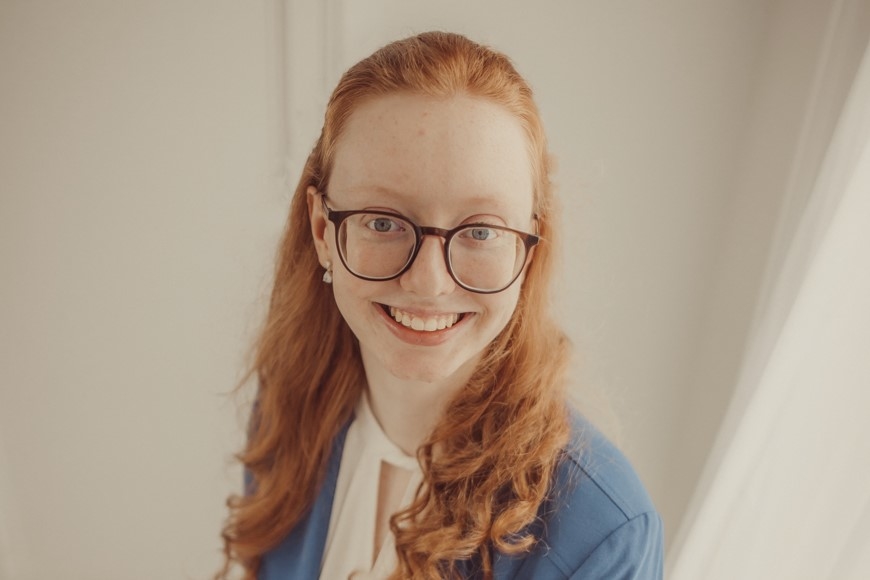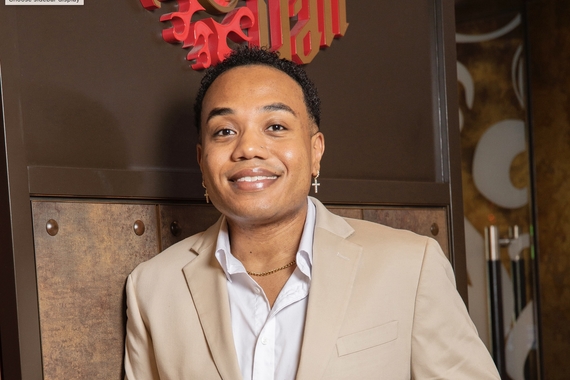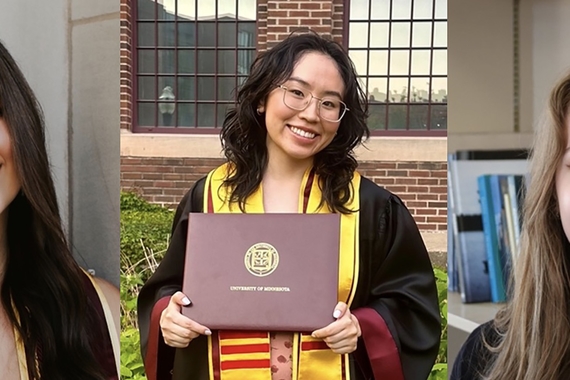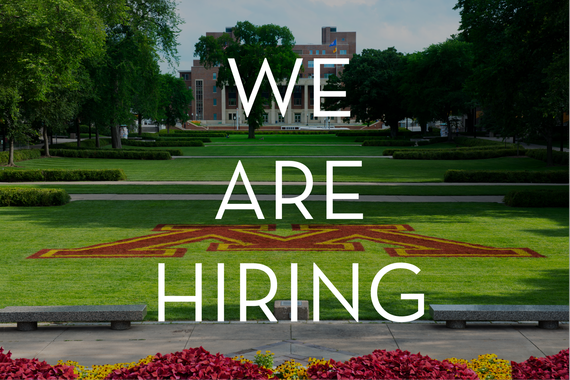“I Want to Make an Impact”
What are you studying and why did you choose your major and minor?
I'm majoring in technical writing, specifically the biological and health sciences subplan, and minoring in integrative neuroscience and public health.
When I started college, I was extremely unsure as to what I wanted my future to look like. Coming in as an undecided student, I took several courses my first semester at the University to try and narrow my interests. One of those courses was a freshman seminar called Writing Medicine with Professor Molly Kessler. I had a truly enlightening experience in that course and attribute both my current career path and my current academic path to the influence that course had on my perception of what was possible.
I'd always had somewhat varied interests, but foremost among them were communication and medicine. Coming into college, they were two separate entities in my mind with some connections but no possibility for true integration. Kessler and the Writing Medicine course showed me integration was not only possible but was a potential career path.
Since then, I haven't looked back, choosing instead to focus on the future of uniting these two fields into something greater than either could be alone. Technical communication as a sphere of influence is about combining topics, conveying information, and creating action. Bringing this approach to medicine can help craft a more equitable, healthy world for everyone.
How have scholarships, grants, or other financial support made a difference in your education?
I have received the 2020 Victoria Mikelonis Award and the 2021 Coakley Ames Writing Award. This support has enabled me to achieve my dreams, something I'm eternally grateful for. At moments when I doubted myself or my abilities, these scholarships provided tangible evidence that I was capable.
Everyone experiences doubt, but being able to manage that doubt, to stop it from becoming overwhelming, is a skill only some possess. These scholarships have helped me to develop my ability to cope with self-doubt, and that is invaluable to me as not just a student but as a human being.
At times, education is fraught with setbacks and can seem never-ending; there is always the next assignment, the next lecture, the next week, the next final, the next semester. But these scholarships have enabled me, both financially and, more importantly, mentally to focus on the now and look forward to the future.
Without these scholarships, I wouldn't be able to concentrate my full attention on my education and would have to work during the school year. As it is, I've been struggling recently to cope with just my schoolwork, and these scholarships have enabled me to further my career through my education. Truly, it is astonishing to me that people will provide strangers with the opportunity to make a life for themselves, and I'm utterly beholden to those who have allowed me to get where I am.
What experiences have you had outside of the classroom that enhanced your understanding of what you are studying?
Outside of the classroom, I am participating in the Technical Communication Advisory Board's Mentor Program for the second consecutive year. Getting a chance to connect, build a relationship, network, and receive advice from an experienced member in the industry has been an invaluable opportunity for my career. Both of my mentors have offered to let me tour their work environments, sent me resources and references, provided resumé recommendations, and encouraged my goals while steering me in directions I hadn't previously considered.
Talking to those who have experience in your field and can provide specific tips and tricks regarding graduate school, the workforce, and current job opportunities is priceless. Getting an insider's view on how classroom knowledge is applied in a variety of situations and circumstances in the "real world" has been crucial in helping me incorporate my education with my career. That’s not something I'm sure I would've been able to access without the mentor program.
What is your dream job and how is your liberal arts education helping you reach your post-graduation goals?
My dream job is to work for Medtronic and develop operational knowledge of cutting-edge biotechnological products while working to make that knowledge more accessible and available to everyone. Communicating, analyzing, and crafting evidence-based documents to make them approachable and equitable is my goal, one that my liberal arts education is helping me to achieve.
Liberal arts at the University of Minnesota is not speculative, it's applicable.
By honing my linguistic skills through liberal arts courses, I've been able to apply those skills across the board—in courses on biology, chemistry, neuroscience, public health, epidemiology, oceanography, and others—and use them to create a functional resume and impactful applications. I attribute my liberal arts education to my accomplishments with internships and scholarships.
Post-graduation, liberal arts has established a platform I can use as a launching pad for success, and having the "soft skills" liberal arts has provided me with is extremely valuable to future employers who are looking for employees trained to think outside the box.
I want to make an impact; creating and modifying documents that will impact others, even if that's just a single person at a single moment in their life, is my ultimate goal. Liberal arts has provided that opportunity for me.
What is one aspect of your major that has surprised you? What do you wish more people understood about what you study?
Several aspects of my major have surprised me; from its sheer scale in the professional world to its broad applicability across courses academically.
Also, the lack of knowledge about my major's mere existence shocked me. Most people at the University (and most of my family, for that matter) hadn't even heard of technical communication as a field. This contributes to a lack of understanding, a lack of awareness of the incredible work achieved by technical communicators globally, and a lack of interest from future contributors to the field. I've tried to educate my peers and friends by describing my major and providing a few more details than is perhaps absolutely necessary about what technical communication entails.
In general, I wish more people were aware of the historical and current contributions of technical communication to global industry. This awareness could create some of the currently lacking appreciation for the field as a whole and could help build a more diverse and inclusive workforce for the future.



